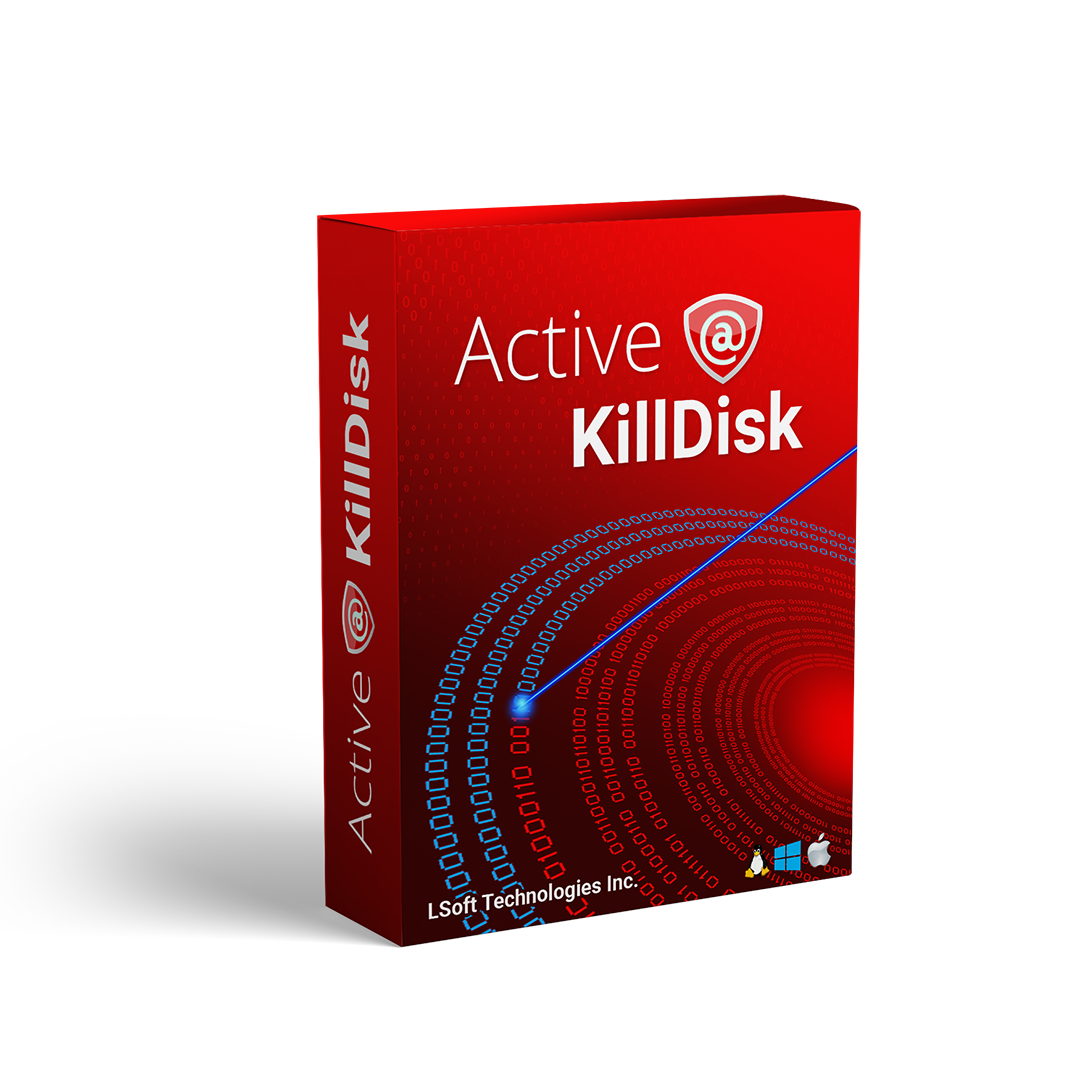U.S. Data Privacy Laws Unveiled: A Deep Dive into the Utah Consumer Privacy Act (UCPA)
Introduction
As data privacy regulation sweeps the United States, each state brings its own philosophy and standards to the evolving landscape. With California, Virginia, and Colorado setting early benchmarks in consumer protections, Utah enters the field with a distinctly different approach. The Utah Consumer Privacy Act (UCPA), effective since December 31, 2023, stands out as the nation’s most business-friendly privacy law among the current generation. In this fourth article in our series on data security laws, we’ll examine the UCPA’s requirements, assess its implications for businesses and consumers, and highlight why data deletion tools like Active@ KillDisk and KillDisk Industrial remain vital for responsible organizations.
Utah’s Pragmatic Approach: The "Lean" Consumer Privacy Law
Unlike its counterparts, Utah’s UCPA is recognized for its streamlined requirements and focus on reducing business burdens. While it represents an important step in expanding data privacy discussions, many experts also describe it as the “least restrictive” law to date. Businesses benefit from clarity and minimal compliance headaches, but what does this mean for consumers, and what should companies know?
Who Must Comply: Targeting Only the Largest Players
The UCPA’s scope is among the narrowest in the country. It applies only to businesses that:
- Conduct business in Utah or target Utah residents,
- Have at least $25 million in annual revenue, and either:
- Control or process personal data of 100,000 or more Utah residents annually, or
- Derive over 50% of gross revenue from the sale of personal data by processing data of 25,000 or more Utah consumers.
The result? Small and midsize enterprises, unless heavily invested in data sales, are generally out of scope. The UCPA’s focus ensures compliance obligations rest almost exclusively on major tech firms, large retailers, and data-centric corporations.
Key Consumer Rights Under the UCPA
Utahns do receive new data privacy rights through the UCPA, though these are more limited than in other states:
- Right to Access: Consumers can request confirmation of whether a business is processing their personal data and obtain access to that data.
- Right to Deletion: Residents can request deletion of personal data provided by or obtained about them.
- Right to Data Portability: Consumers may request a copy of their personal data in a form that can be readily transmitted to another entity.
- Right to Opt-Out: Utahans can opt out of:
- The sale of personal data, and
- The use of their data for targeted advertising.
Noticeably missing is the right to correct inaccuracies in personal data—something available in California, Virginia, and Colorado. Also, Utah’s law does not grant consumers the right to opt into sensitive data processing; instead, opt-out rights and business disclosures are relied on to safeguard sensitive information.
Limited Protections for Sensitive Data
The UCPA’s handling of sensitive personal information is among the least restrictive in the country. Sensitive data—such as religious beliefs, health information, sexual orientation, or citizenship status — may be processed with only notice and an opt-out mechanism. There is no requirement for explicit opt-in consent, which is a significant difference from Virginia, Colorado, and even California’s approach.
Business Obligations: Minimal Yet Crucial
Despite its light touch, the UCPA specifies some essential operator requirements:
- Transparency: Businesses must provide consumers with a clear privacy notice detailing data collection practices, categories of personal data processed, and how consumers can exercise their rights.
- Data Protection Practices: Controllers must implement “reasonable” safeguards to protect personal data, and must have contracts in place with processors to ensure compliant handling of data.
- Response to Consumer Requests: Organizations have 45 days to fulfill access, deletion, portability, or opt-out requests (with an option for one 45-day extension).
- No Private Right of Action: Only the Utah Attorney General can enforce the law; consumers cannot sue businesses directly. Violations are subject to investigation and civil penalties, but before enforcement, businesses receive a 30-day notice and opportunity to cure alleged failures.
This “cure period” gives organizations a chance to remediate issues before facing regulatory action—a further indication of Utah’s business-oriented approach.
Restrictiveness and Enforcement: The Lowest in the Nation?
Compared to earlier data privacy laws, the UCPA is the least restrictive in several key respects:
- Narrow Applicability: Most businesses are unaffected unless they handle massive data volumes or focus on data sales.
- No Right to Correct: Consumers cannot demand corrections to their data.
- No Opt-In for Sensitive Data: Consent requirements are less stringent, and businesses have more flexibility with sensitive information
- No Private Lawsuits: Only the Attorney General can pursue enforcement, reducing legal risk compared to states where consumers can sue.
For organizations already in compliance with stricter regimes like the CPRA or the VCDPA, the UCPA offers welcome simplicity, with significant overlap in best practices — but far fewer hoops to jump through.
Why Data Sanitization Still Matters
With leaner compliance rules, it might be tempting for covered organizations to let their guard down on data handling. However, proper data management — including verifiable **data sanitization **— is a pillar of trust, operational security, and regulatory readiness.
When a Utah consumer requests deletion, the UCPA mandates businesses to fulfill that request efficiently and completely. This is where robust data wiping solutions make a difference:
Active@ KillDisk and KillDisk Industrial: Efficient, Compliant Data Destruction
Even with Utah’s flexible laws, accidental data exposure, improper device re-use, or half-measures in data deletion can still lead to regulatory scrutiny and reputational damage. Tools like Active@ KillDisk and KillDisk Industrial enable businesses to securely and irrecoverably erase sensitive data from storage devices, exceeding industry standards for data destruction (IEEE 2883, NIST 800-88). Whether you need to wipe a single workstation or hundreds of drives in an enterprise setting, these solutions ensure your data deletion processes are effective, reliable, and easily auditable.
Employing such practices isn’t just about legal compliance — it’s about maintaining customer trust and demonstrating a proactive approach in a rapidly changing digital environment.
Conclusion: Utah’s UCPA — A Lean, Business-Friendly Model
The Utah Consumer Privacy Act exemplifies a pragmatic approach to consumer privacy, combining essential rights with protections designed to minimize compliance burdens for businesses. Its limited scope, lean obligations, and straightforward enforcement mechanisms mark it as the most business-friendly U.S. privacy statute to date. Still, the spirit of the UCPA, like other state laws, emphasizes transparency and consumer autonomy — values that every organization should uphold.
As data privacy regulation continues to evolve, businesses covered by the UCPA are wise to adopt proven best practices, such as secure data deletion, regardless of the law’s relative leniency. With tools like Active@ KillDisk and KillDisk Industrial, companies can confidently address consumer requests and mitigate risk — preparing not just for today’s requirements, but for whatever the future may hold.
Stay tuned for upcoming articles in our data security law series, where we will continue to map the shifting regulatory terrain across the U.S. and around the globe.
References:
Utah Consumer Privacy Act (UCPA)
Software mentioned in the article:


